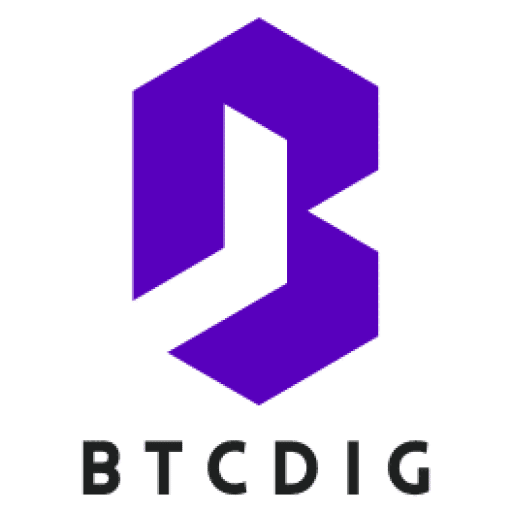What Nutritional Strategies Can Enhance Cognitive Performance in Competitive Gamers?
How often do you consider the role nutrition plays in your gaming performance? As competitive gaming or esports continues to gain traction globally, it’s crucial for players to consider not just their training and strategies, but also their diet. Proper nutrition is a key player in both physical and cognitive performance, and its impact can directly affect the outcome of a game. Whether you’re a professional eSport player or an enthusiastic gamer, incorporating nutritional strategies into your regime is essential.
In this article, we’ll explore the profound connection between nutrition and cognitive performance in esports, providing you with essential knowledge and strategies to enhance your gaming abilities. Here’s a comprehensive look at the integral role of diet in esports and how you can optimise your performance through nutritional interventions.
Dans le meme genre : How Does Access to Green Spaces Reduce Hospital Readmission Rates?
The Role of Nutrition in Esports Performance
What does it mean to eat with gaming performance in mind? Esports might not involve the same physical demand as traditional sports, but its cognitive demands are intense. Players are required to have incredible mental agility, sharp reaction times, decision-making skills, and sustained attention. All these abilities can be significantly influenced by what you eat and when you eat it.
Research indicates that nutrition can impact our brain functions, directly affecting cognitive performance in athletes and, of course, gamers. Dietary intake plays a pivotal role in energy availability, muscle recovery, and overall health. In the context of esports, gamers need steady energy levels to maintain focus, endurance, and cognitive agility during long gaming sessions. Therefore, understanding nutritional strategies can be the secret weapon to enhance your gaming performance.
A lire également : Can Group Counseling Reduce Stigma Associated with Mental Health Disorders?
Optimizing Energy Through Balanced Nutritional Intake
Effective energy management is critical for esports athletes. Playing games for prolonged periods can be mentally exhausting, requiring a constant source of energy. A balanced nutritional intake is the cornerstone to ensure you have enough energy to fuel your gaming sessions.
Complex carbohydrates, such as whole grains, fruits, and legumes, provide a slow and steady release of glucose, the brain’s primary source of energy. Consuming these foods can help maintain your focus and cognitive performance throughout long gaming sessions. In contrast, foods high in sugar and simple carbohydrates can cause energy crashes, affecting your gaming performance.
Protein is another key component of your diet. It supports muscle recovery and promotes feelings of fullness, which can be beneficial during long gaming sessions. Consuming lean sources of protein such as meat, fish, eggs, and plant-based proteins can support your body and brain health.
Hydration and Cognitive Performance
Hydration plays a vital role in maintaining cognitive functions, including attention and memory. Even mild dehydration can lead to decreased cognitive performance and negative effects on mood and energy levels. Therefore, maintaining adequate hydration is especially important for esports players who need to stay mentally sharp for extended periods.
Drinking water alone can sometimes not be sufficient, especially during intensive gaming sessions. In such cases, sports drinks containing electrolytes can be beneficial. Furthermore, beverages like green tea can provide a caffeine boost to keep you alert, while also supplying antioxidants beneficial for overall health.
Micro-nutrient Strategy for Cognitive Enhancement
Micro-nutrients, including vitamins and minerals, are essential for many bodily functions, including brain function. Several studies have shown a link between specific micro-nutrients and improved cognitive performance.
For example, B-vitamins are key for energy production and brain health, while antioxidants like vitamins C and E help protect brain cells from damage. Omega-3 fatty acids, commonly found in fish and flaxseeds, are essential for brain health and may also improve cognitive function. Including these nutrients in your diet can help optimize your cognitive abilities for gaming.
Timing your Nutritional Intake
When you consume your meals and snacks can be just as important as what you eat, particularly in esports. Consuming a balanced meal before gaming can provide you with the necessary energy and cognitive boost to perform your best.
During long gaming sessions, regular small meals or snacks can help maintain your energy and focus. These should include a good balance of complex carbohydrates, protein, and fats to ensure steady energy release and prevent crashes.
After gaming, a nutrient-rich meal can aid recovery and prepare you for the next gaming session. This meal should contain protein to aid muscle recovery, carbohydrates to restore energy levels, and plenty of fruits and vegetables to provide important vitamins and minerals.
Remember, good nutrition is not just about the physical aspect; it plays a critical role in maintaining cognitive performance too. Consider these nutritional strategies to give you the edge in your esports performance.
The Impact of Body Composition on Esports Performance
The connection between body composition and sports performance is well-documented in traditional sports. A study on "Body Composition and Physical Performance: Applications For the Military Services" by the National Academies Press, available on Google Scholar, suggests that an athlete’s body composition can directly impact their physical performance. This raises a pertinent question: Does body composition matter in esports, an arena where physical activity is minimal? The answer is a resounding yes.
Esports may not involve high intensity physical activity like basketball or other team sports, but it does require a significant amount of mental exertion. And the brain, like any other organ in the body, relies on optimal body composition to function at its peak. An article published on Preprints.org titled "Body Composition and Mental Health among Adolescents: An Examination of Deviations from Ideal Body Mass" found that having a healthy body composition leads to improved cognitive performance and mental health.
For esports players aiming for top-tier performance, maintaining a healthy body composition is a must. This means not just focusing on body mass, but also on muscle-to-fat ratio, bone density, and fluid balance. Overweight or underweight conditions may impact your energy levels, cognitive function, and overall esports performance.
Sports nutrition experts recommend a balanced diet of lean proteins, complex carbohydrates, and healthy fats to maintain optimal body composition. Regular physical activity, though not directly related to gaming, can help regulate body composition and consequently, cognitive performance. Specific protein intake recommendations can vary depending on factors such as age, gender, and level of physical activity, so it’s best to consult with a professional for personalized advice.
Fluid Intake: Quenching Thirst and Boosting Cognitive Performance
Fluid intake is a critical yet overlooked aspect of esports. In traditional sports, athletes consume fluids to replace what they lose during high-intensity workouts. However, for esports players, the need for fluid intake goes beyond just quenching thirst.
According to a study in the Journal of the International Society of Sports Nutrition, even mild dehydration can impair cognitive performance, mood, and concentration. For esports players, who depend on these mental faculties, maintaining optimal hydration is a must.
The type of fluids consumed also matters. As mentioned earlier, sports drinks containing electrolytes can provide necessary hydration during long gaming sessions. However, these should be consumed in moderation as excess sugar can lead to energy crashes.
Water remains the best source of hydration. For those who need a caffeine boost, green tea is a great option. It’s not just the fluid intake that aids cognitive performance but also the antioxidants present in green tea.
Conclusion: Game Your Way to Victory with Nutritional Strategies
There’s no denying the role of sports nutrition in enhancing the performance of esports athletes. From optimizing energy through balanced nutritional intake to boosting cognitive performance with hydration and micro-nutrient strategies, every aspect of nutrition has the potential to turn the tide in favor of the player. And let’s not forget, maintaining a healthy body composition is equally integral to a player’s success in the virtual arena.
For esports players and enthusiasts, the road to victory doesn’t end at honing gaming skills or developing advanced strategies. It extends to the dining table where the right foods and beverages can fuel the body and mind, and even to the gym where regular physical activity can help maintain optimal body composition.
Remember, what you eat, when you eat, and how much you drink can be your secret weapons in the highly competitive world of esports. Armed with these nutritional strategies, you’re now ready to take your gaming performance to new heights. So, gear up, fuel well, and game on!






